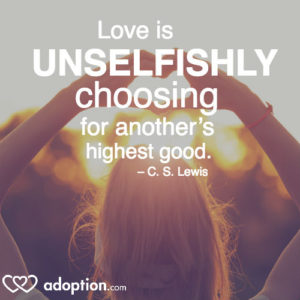November 16, 2017
Supporting The Adoptees In Your Life
It’s National Adoption Month! The best month of the year, and a wonderful time to share valuable knowledge and awareness about the adoption world with others.
When we talk about support in adoption, let’s be honest, we usually talk about the adoptive family. But today we’d like to bring some attention to the adoptees in your life—no matter what their age—and discuss how you can create safe space for them, and better show your support. We can’t stress it enough: there is no age limit for these conversations. It is human nature to want to express ourselves, and whether the adoptee in your life is 75 or 3, there is room positive, non-judgmental, and compassionate conversation in your relationship. So how can you offer more support to the adoptee in your life?
Ask questions! It can be so difficult to open up, especially if you feel like the people in your life don’t understand what you’re going through. You don’t have to understand your loved one’s situation to show interest or care. Let them know you’d love for them to share more about their experience as an adoptee, if they’re comfortable, and if you do have questions, ask them without judgment and without expectation of a certain response.
Don’t offer advice unless they ask for it. Real talk: people aren’t often interested in advice. We want to vent, we want to get our feelings and emotions out, but unless we’re really seeking advice from someone, it can feel abrasive to be told by someone else what they think you should do. And that is especially true if you are not an adoptee yourself. You are not in a position to give advice regarding how an adoptee should feel about their adoption. Period. Focus on compassion and support. If you don’t agree with a reaction of theirs, or something they express, politely keep it to yourself.
Maybe they’re not looking for positivity. When you are completely down, sometimes abject positivity isn’t what you need. Often we just want to hear, “You’re right. This absolutely and totally sucks.” Validating negative feelings is so important, and tends to go much farther than trying to come up with a million reasons why they should feel happy. They don’t. Start there.



